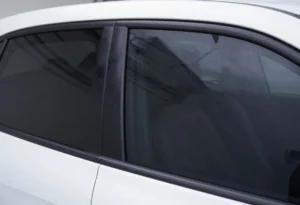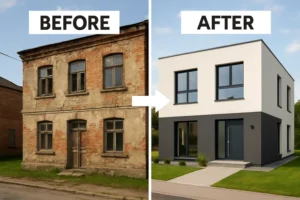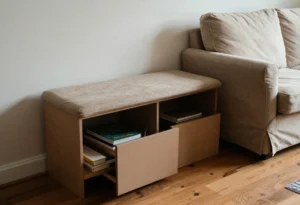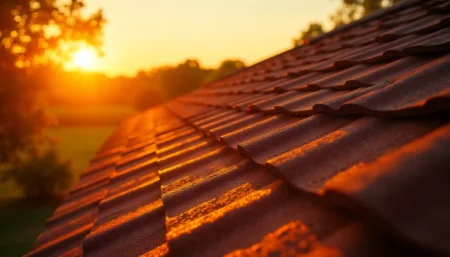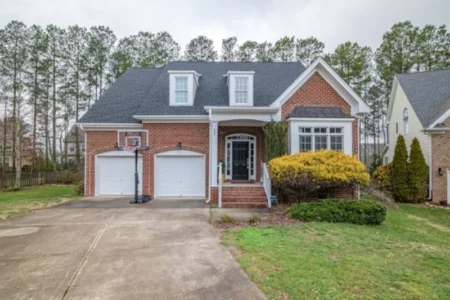A roof is one of the most important components of any property. It provides critical protection from the elements for the entire structure and inhabitants. However, over time all roofs require replacement. When that time comes, the inevitable question arises – how much will a new roof cost?
Getting an accurate estimate is crucial when budgeting for this major home improvement project. Roofing costs can range widely depending on the specifics of the job. Many factors come into play in determining the total expenditure for installation of a new roof.
In this comprehensive guide, we will examine all the variables that affect pricing for roof replacement. You’ll get a clear understanding of realistic costs per square foot and total project estimates. We’ll also explore ways to save on your new roof and financing options to make the upgrade more affordable.
Factors That Influence the Cost of a New Roof
Many elements contribute to the final price tag for reroofing an entire house or building. The major cost drivers include:
Roofing Materials
The products used for roof coverings make up a significant portion of the total project price. Materials vary widely in cost.
Asphalt Shingles
Asphalt or composite shingles are the most common roofing type for residential homes. This affordable option ranges from $100 to $400 per square installed.
- 3-tab shingles – The most economical asphalt shingle. Durable but lacks dimensional texture. $100-200 per square
- Architectural shingles – Dimensional, layered shingles that mimic wood shakes or slate tiles. $200-400 per square
Metal Roofing
Metal roofs have an extremely long lifespan. The material costs for metal roofing start at about $300 per square up to $1000 per square for premium products.
Tile Roofing
Clay and concrete roof tiles lend great curb appeal but come at a higher cost. Tile roofing runs $600-1000 per square normally.
Slate Roofing
Natural slate roofing delivers outstanding beauty and durability. But the material cost alone can be $1000-2000 per square.
Wood Shakes/Shingles
Wood roofing gives a classic, rustic look. However, the materials for this less common option can be expensive at $700-1200 per square.
Size of the Roof
The total roof square footage is a major cost factor. Larger roofs require more materials and longer labor hours to complete. Key measurements include:
- Total square feet of roofing surface
- Number of square roofing units needed. Each square = 100 sq ft of coverage.
- Roof pitch – steep pitches require more material per square.
Labor Costs
Roofing installation requires skilled tradespeople. The labor costs for removal of old roofing, preparing the structure, and proper installation of new materials can account for 50% or more of the total new roof price.
Labor rates for roofers range from $80-150 per hour based on the region and company size.
Roof Features and Accessibility
Additional roof structures like dormers, skylights, and chimneys add technical complexity and costs. Access challenges due to height or obstacles also drive up labor expenses.
Flashings, Vents and Insulation
Integration of roof drainage components, attic ventilation, radiant barriers, and insulation during reroofing can enhance energy efficiency and weatherproofing. But these improved features do increase the bottom line by $2-8 per square foot typically.
Materials Delivery Fees
Bulk roofing supplies often incur delivery charges. These fees, along with permit costs and dump fees for roof tear-off debris removal can add $500-1000+ to the total bill.
Typical Per Square Foot Roofing Costs
Looking at rate benchmarks per square foot covered gives a basic idea of price ranges. Keep in mind regional labor rates result in fluctuation.
| Roofing Type | Low End | High End |
|---|---|---|
| Asphalt Shingle | $5.50 | $12 |
| Metal | $10 | $25 |
| Flat Roof | $8 | $20 |
| Tile | $10 | $30 |
| Slate | $30 | $60 |
Estimating Total New Roof Cost
To calculate a ballpark investment range for your particular roof size and location, utilize the following basic formula:
Total square feet of roof x materials cost per square x 110% (for labor) = Total roofing cost
The overall project expense can vary +/- 20% from this initial estimate depending on any special features or challenges.
Always get detailed quotes from trusted local roofing contractors to zero in on accurate pricing. But this method gives a reasonable approximation to begin budget planning.
Below are two examples applying the formula:
1. Simple 30 Square Asphalt Shingle Roof
- 30 squares coverage needed
- Asphalt shingle cost per square = $400
- Total material cost = 30 x $400 = $12,000
- With 110% labor costs factored in
- Estimated Total Cost = $12,000 x 1.1 = $13,200
2. Large 80 Square Tile Roof
- 80 squares roof size
- Concrete tile cost per square = $700
- Total tile materials = 80 x $700 = $56,000
- With 110% labor costs factored in
- Estimated Total Cost = $56,000 x 1.1 = $61,600
These examples illustrate how roofing costs scale significantly with size and material grades.
Always remember regional labor rates result in different real-world prices city-to-city.
How Location Impacts Costs
Where you live creates pricing variances for roof replacement. Labor costs are the main drivers.
In general, roofing costs are highest in the Northeast and West Coast. Strong demand and higher wages for roofers lift prices in states like New York, Massachusetts, and California.
The Midwest and Southern states tend to have lower roofing costs on average thanks to lower cost of living and labor prices. Still expect wide regional differences within these portions of the country too.
Also factor local building codes, permit fees, and material transportation expenses based on your area. These can bump your total bill up or down several percentage points.
Saving on Your New Roof Project
Don’t let the costs dissuade you from a much-needed roof replacement. There are ways to control expenses with smart planning and decisions.
Prioritize Regular Maintenance
Keep ahead of leaks, damage, and debris buildup on your roof through at least annual inspections and tune-ups. Addressing minor issues promptly extends the roof lifespan dramatically.
Time Repairs Strategically
Pick the ideal time to make minor roof repairs to get the lowest price. Avoid peak seasons when roofers are busiest.
Install Efficient Roof Decking
Use radiant barrier sheathing and energy-efficient roof insulation when reroofing to reduce utility bills. The upfront cost is more than paid back through energy savings.
Compare Contractor Quotes
Get proposals from a minimum of 3 roofers to find the best deal. Ask about cost-saving material options and negotiate pricing.
Purchase Roofing Materials Yourself
Supplying your own roofing materials can knock 10-20% or more off labor fee quotes. Just coordinate closely with the installer on product details.
Seek any Available Tax Credits
Look into tax incentives for energy-efficient roofing through programs like ENERGY STAR. These can offset 5-10% of the project costs.
Financing Your New Roof
Despite money-saving steps, a new roof still represents a major household investment. Explore all your finance options to lighten the burden.
Home Equity Financing
Tapping home equity via a line of credit, cash-out refinance, or home improvement loan offers low-interest financing.
Personal Loans
Banks and credit unions can provide personal installment loans at reasonable rates for home upgrades.
Roofing Company Financing
Many roofers offer financing programs partnered with lending companies. Compare terms closely.
Roofing Materials Supplier Financing
Building supply companies may offer financing or lending partnerships to help purchase costly roofing products.
Property Assessed Clean Energy (PACE) Programs
PACE provides affordable loans repaid via property taxes for energy-related remodels like cool roofs.
Insurance Claims
File a claim through homeowners insurance for hail/storm damage. Insurer will fund all or a portion of roof replacement.
Government Improvement Grants
Federal, state, or local agencies may have special grants related to disaster recovery or energy-efficient remodels – worth exploring.
With all these options, there are many ways to fund your important roofing investment.
Hiring the Right Roofer
A properly installed, long-lasting roof depends on hiring the right contractor. Follow these tips to find a qualified, reputable roofing company:
Verify Licensing and Credentials
Only consider companies with up-to-date licensing for your state and city. Ask for proof of insurance certificates as well.
Look for Industry Certifications
Search for roofers certified by manufacturers like GAF, Owens Corning, and CertainTeed. This validates their training and expertise with those products.
Check Reviews and References
Research online reviews on multiple sites like Google, Yelp, and the Better Business Bureau. Ask for and call references to confirm quality work and service.
Require Detailed Quotes
Get quotes in writing from at least three roofers. Compare line item costs for materials, labor, fees, warranties, and timelines.
Ask About Warranties
Good contractors offer robust warranties – 10 years or more on workmanship. Top brands also have material guarantees (20-50 years).
Evaluate Response Times
Pay attention to how quickly roofers returned your calls or came for an estimate. Good communication indicates reliable service.
Trust Your Instincts
Go with a roofer you feel good about after doing diligent research. Don’t ignore red flags like extremely low prices or pushy tactics.
Hiring the right company ensures you get the best quality and value from your roofing investment.
Real Cost Examples From Roofing Projects
Looking at real-life new roof costs provides the most accurate perspective on potential investment ranges. Here are a few examples with cost breakdowns:
Birmingham, AL: 1,800 sq ft Ranch House
- Asphalt Shingles: 30-year architectural shingle
- Total: 18 squares
- Materials: $220 per sq x 18 = $3,960
- Labor and fees: $2,800
- Total Cost: $6,760
This basic asphalt shingle reroof in a lower cost area was completed for right around $6,800.
Austin, TX: 2,500 sq ft 2-Story Home
- Metal Roofing: Premium Standing Seam
- Total: 32 squares
- Materials: $850 per sq x 32 = $27,200
- Labor and fees: $18,240
- Total Cost: $45,440
The large size and premium metal roofing materials pushed costs for this Austin house over $45,000.
San Diego, CA: 1,200 sq ft Bungalow
- Asphalt Shingles: Architectural shingle with cool coating
- Total: 14 squares
- Materials: $475 per sq x 14 = $6,650
- Labor and fees: $9,800
- Total Cost: $16,450
Despite the smaller roof size, the higher labor rates in San Diego drove this re-roof over $16,000.
Boston, MA: 3,000 sq ft Colonial
- Asphalt Shingles: Premium Lifetime shingle
- Total: 30 squares
- Materials: $600 per sq x 30 = $18,000
- Labor and fees: $22,500
- Total Cost: $40,500
For this large colonial roof in a Northeast metro area, costs exceeded $40,000. Higher regional labor was a major factor.
These real-world examples illustrate how costs for a new roof installation can range widely but often top $10,000+ for most homes.
Key Takeaways: What to Expect for Your Roof Replacement Costs
Projecting total investment for your upcoming roof replacement starts with understanding the key cost factors:
- Materials account for 30-70% of total cost
- Labor adds a significant expense
- Size in squares has a big impact
- Additional features like ventilation add cost
- Location affects pricing significantly
Realistic cost ranges:
- Asphalt shingle roof: $5-10 per sq ft
- Metal roof: $10-20 per sq ft
- Tile roof: $10-25 per sq ft
- Slate roof: $30-60 per sq ft
Always get detailed quotes. But you can also use basic calculations with cost per square estimates to approximate overall budget amounts.
With proper planning, researching financing options, and hiring qualified roofers, a new roof can be a justifiable and worthwhile investment that provides decades of reliable performance.
Frequently Asked Questions
Many homeowners have additional questions when estimating costs for a new roof. Here are answers to some of the most common inquiries.
Does roof pitch affect the cost?
Yes, steeper roof pitches generally increase overall roofing costs. The slope requires more material to cover each square footage and makes installation a bit more complex. Expect to pay 10-15% more for a high-pitch roof.
Is a metal roof more expensive than asphalt shingles?
Metal roofs have an upfront cost premium over asphalt shingles, often twice as much for materials. But they can last up to 50+ years. The long lifespan makes metal a sound value despite higher initial pricing.
Should I expect extra costs beyond just roofing materials and installation?
There are often additional incidental costs that add 10-20% or more to the roofing total. These include permit fees, materials delivery charges, dump fees for old roof disposal, and extras like new flashing or ventilation.
How much does new roof decking add to the overall cost?
If the roof structure or sheathing is damaged, replacing the decking can add $2-4 per square foot usually. It may only be required in sections, so the total depends on how much needs replacement.
Should I tip my roofer? Is that included in the total quote?
Tips are not mandatory but appreciated for good service. Many homeowners tip roofing crews 10-20% of the project cost. Confirm with your contractor if the quote includes gratuity – some companies do factor it in.
Can I get quotes and book a roofer online?
Many major roofing companies provide online tools to get ballpark estimates and schedule service calls. This is an excellent way to make initial contacts and get the process started. However, you still want to meet in person with any roofer before signing a contract.
These are just some of the common questions homeowners have about the costs and process of a full roof replacement project. Be sure to get all your inquiries answered from reputable local contractors before moving forward.
Conclusion: Plan Properly and Invest Wisely for Your New Roof
A roof is one of the biggest assets and expenditures for any home or building owner. By taking the time to fully understand the costs involved, you can plan and budget properly for this essential home improvement.
With sound preparation, realistic expectations of cost ranges, roofing material research, financing arrangements, and the best contractor selection, you are primed for success with your roof replacement project.
The investment may be significant, but remember – you are protecting your property’s value and comfort for decades to come. With regular maintenance and smart upgrades like efficient insulation, that new roof will deliver outstanding performance for you and future owners. The initial cost today pays dividends through enhanced durability, energy savings, weather protection, and added curb appeal for years to come.
